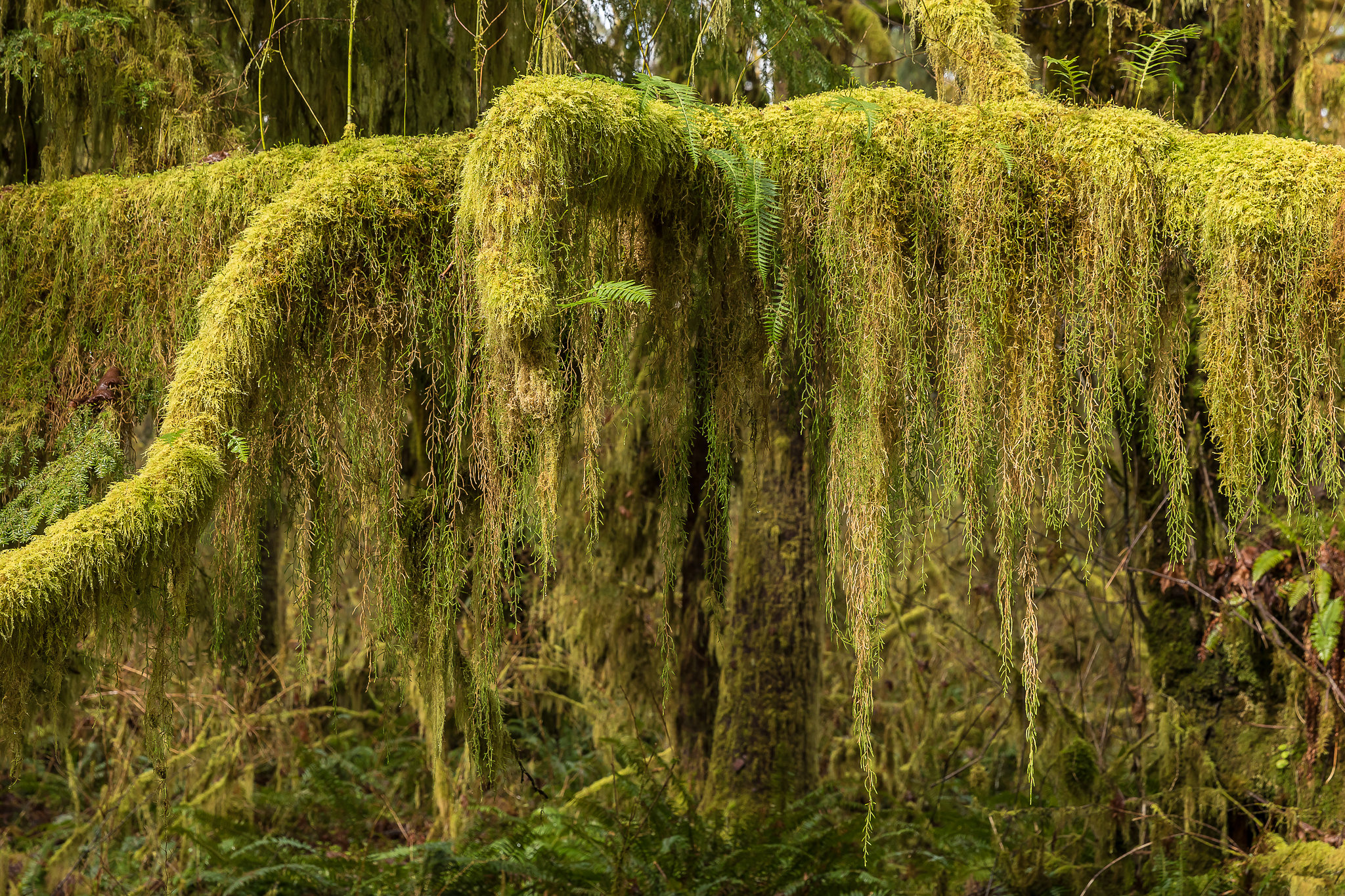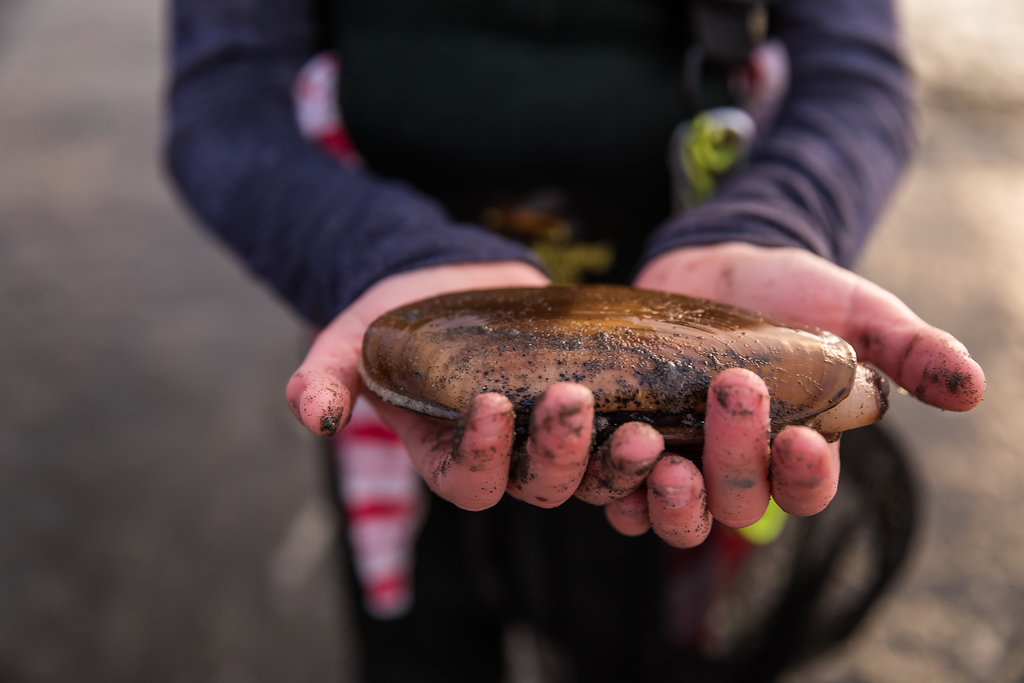Douglas Reed: Environmental Conservation as a North Star for the Timber Industry
By Anya Blaney
The sap of Pacific Northwest forests runs in Doug Reed's blood. As the president of Green Diamond Resource Company, a family business for over a century, he is a luminary of the lumber industry. His connection between commercial lumber practices and how to use them responsibly sets him apart, and he provides his insights to benefit the future of Washington's forests as a member of The Nature Conservancy's (TNC) Washington Board of Trustees.
Doug's great-great-grandfather, Sol Simpson, established the Simpson Investment Company as a traditional timber company in 1890. Green Diamond Resource Company's spinoff has evolved into a forestry stewardship business. Over the centuries, the Reed family has created a rich legacy of environmental innovation in the forest products industry by considering the balance between business and conservation. It's a concept that Doug's relatives have passed down—and he sees it as the only natural way for the company to succeed.
“The notions of stewardship and sustainability come with the territory if you’ve been around for a while, and they just happen to fit very much hand-in-glove with what has to happen in forests,” Doug explained. “If you’re thinking about managing a forest in a way that has ecological benefits but also economic return, you must think up to 50 years into the future. That fits very much with long-term family ownership. The notions of stewardship and sustainability were present in my family culture.”
One thing that was not part of Doug’s family culture was the requirement that he would eventually work for the family business (much less become the president). Whereas family businesses often make sure kids know the ropes early in preparation for an eventual career, Doug’s childhood memories are full of trips to the family’s shared vacation farm out in the country.
“I have so much natural connection to the Douglas fir forests of Western Washington,” Doug said. “It’s very dense, and the trees and shrubs give you a cathedral-like experience. My first love would have to be that Western Washington side, but I also have a lot of affection for the dry side forests of Eastern Washington.”
Quote: Doug Reed
If you’re thinking about managing a forest in a way that has ecological benefits but also economic return, you must think up to 50 years into the future. That fits very much with long-term family ownership. The notions of stewardship and sustainability were present in my family culture.
An appreciation for the environment planted the seeds of his future involvement in his family’s business. Doug took an interest in the company from an early age but did not study forestry during college, instead focusing his interest elsewhere.
He received a bachelor’s in history from Princeton University and then a Master of Business Administration (MBA) from the Stanford University Graduate School of Business. Post-graduation, he pursued global management consulting at McKinsey & Company and worked outside the family business for 10 years before deciding that lumber and forestry stewardship were in his future.
“There were a couple of times I thought I might do something different,” Doug said. “At the end of the day, [working for the family business] was my north star, and I eventually returned.”
He initially started working for Simpson Door Company, in McCleary, Washington. From there he did stints working in lumber in Georgia and running the company’s California operations. Eventually, in 2014, he was promoted to president of Green Diamond. The Green Diamond Board of Directors had several ties with TNC, and that’s how Doug first became introduced to TNC Washington’s state director, Mike Stevens.
“When the opportunity came up to join the board, it seemed like a natural fit, so I was happy to do it,” Doug said. “I have young kids and a busy job and generally avoid joining nonprofit boards. The Nature Conservancy is the only nonprofit board I serve on. It seemed like it was such a complementary space.”
TNC in Washington has been an ideal alignment between Doug’s views and conservation mindset. He says he feels a kinship to TNC because of his family’s approach to finding a harmonious balance between commercial forestry and preserving forest ecosystems.
"Understanding responsible long-term management and improving the future through our current actions aligns seamlessly with the traditional environmental perspective," Doug explained. "In forest traditional management, we recognize that there are certain areas where it's appropriate to manage forests for ecosystem and commercial benefits. However, there are also areas of such high ecosystem value that commercial management is unsuitable. The Nature Conservancy is an excellent platform to facilitate a transition from commercial forestry to alternative practices that prioritize environmental and ecological purposes."
Quote: Doug Reed
The Nature Conservancy is an excellent platform to facilitate a transition from commercial forestry to alternative practices that prioritize environmental and ecological purposes.
In addition to his educational background, Doug's MBA and finance expertise have made him a good fit for TNC in Washington. He has been instrumental as chair of TNC's Finance Committee, finding it easy to contribute and aid to the organizations mission. Additionally, his business and finance background provide an additional level of support to TNC, ensuring that its sustainability work continues well into the future.
Recently, he worked with TNC when the organization partnered with the Arbor Day Foundation and Trout Unlimited to restore an area devastated by the Bootleg Fire, the second-largest forest fire in Southern Oregon, which destroyed 400,000 acres of forest. Through fundraising efforts, they successfully planted seedlings to nurture a greener future. Doug recognizes the challenges posed by the region's dry, cold winters and arid summers, which makes forestry particularly demanding.
Doug's dedication to creating change prompted him to testify before the House Agricultural Committee in July 2022 to advocate for the Farm Bill and show Green Diamond’s support. He highlighted the significance of private wood forests and wood products in addressing climate health during his testimony. He emphasized that by carefully managing the cycles of growth, harvest and regrowth, forests can thrive for an additional 130 years. Ultimately, the company's core mission revolves around creating a better world for future generations.
To accomplish this vision, the company takes a comprehensive approach, considering many concerns and seeking ways to contribute positively to small towns and rural areas in the West and South. Doug explained their active involvement in initiatives like supporting food banks and ensuring access to nutritious food. Additionally, they prioritize collaboration with the YMCA in Shelton, recognizing the organization's potential for making a significant difference. Focusing on communities facing various challenges, such as education and job creation, they strive to be an integral part of community support.
Doug's impact on the community, encompassing his leadership at Green Diamond Resource Company and his role on the TNC Washington Board of Directors, represents a convergence between the traditional lumber business and his work to keep forestry sustainable. With every seedling planted and every forest preserved, we create a lasting positive influence on future generations.
We Can’t Save Nature Without You
Sign up to receive monthly conservation news and updates from Washington. Get a preview of Washington's Nature News email.








